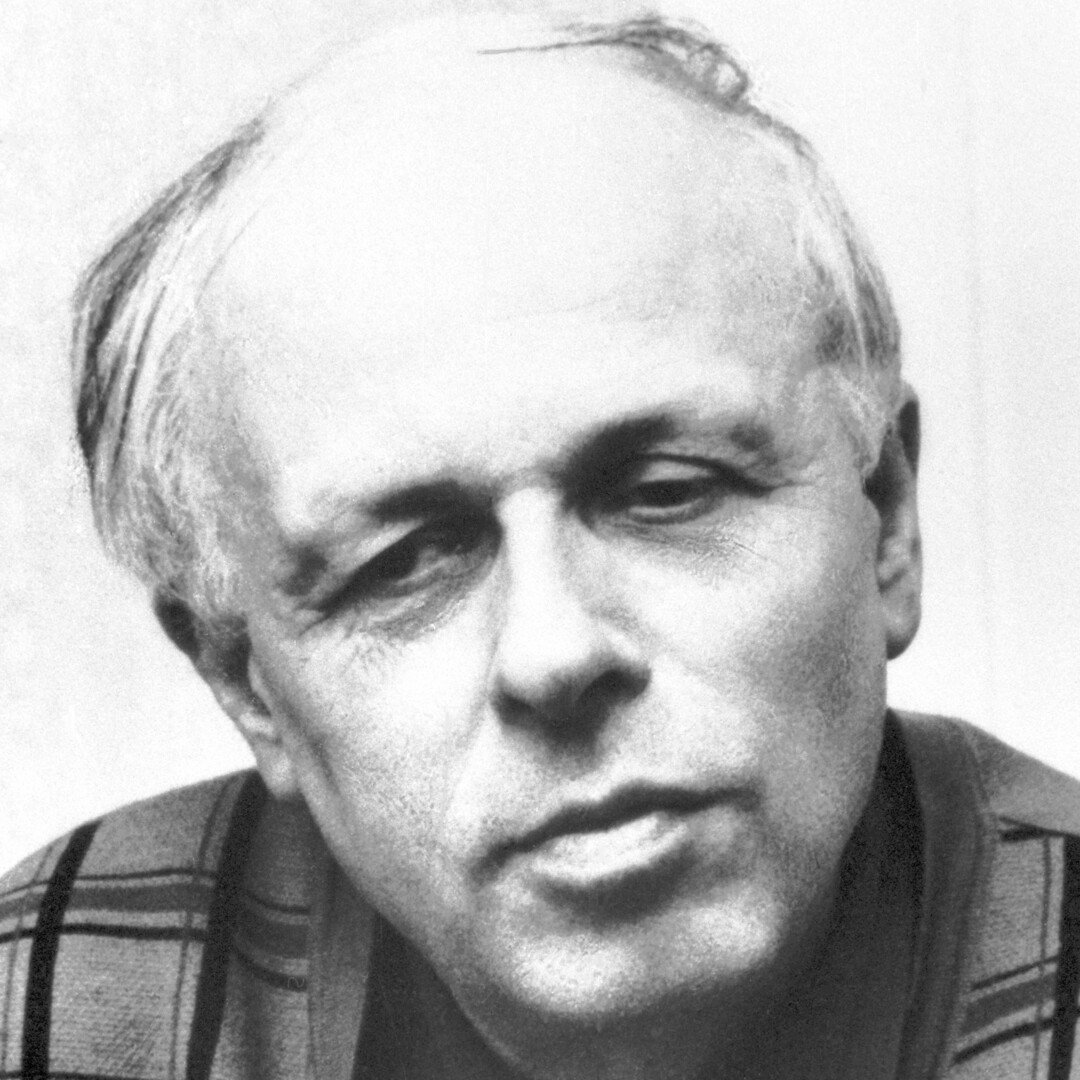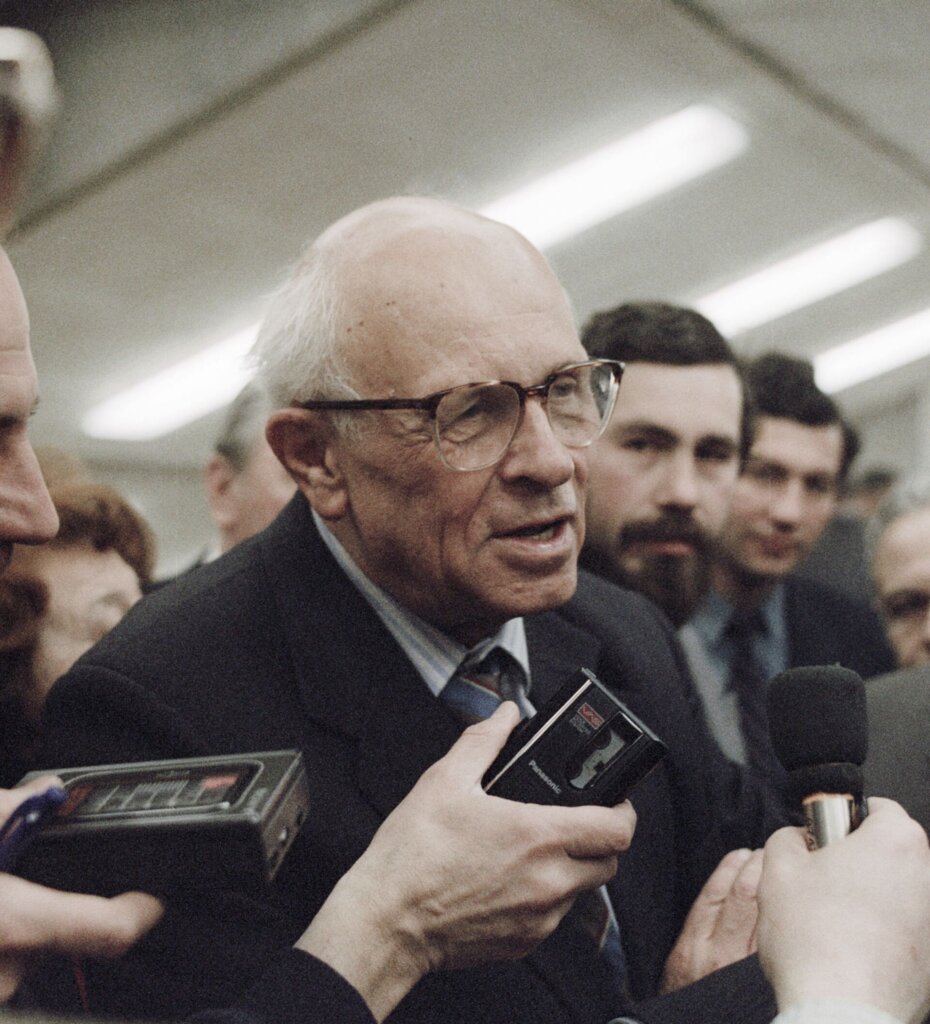Andrei Sakharov
Speed read
Andrei Sakharov was awarded the Nobel Peace Prize for his struggle for human rights in the Soviet Union and his activism for disarmament and international cooperation.

Full name: Andrei Dmitrievich Sakharov
Born: 21 May 1921, Moscow, Russia
Died: 14 December 1989, Moscow, USSR (now Russia)
Date awarded: 9 October 1975
Promoting human rights in the Soviet Union
Andrei Sakharov was awarded the Nobel Peace Prize for his efforts as human rights advocate in the Soviet Union. He was not permitted to travel to Oslo to receive his award, so his wife, Elena Bonner, accepted it on his behalf. In 1980 Sakharov was stripped of all his Soviet titles, and the couple was exiled to the city of Gorky. Not until 1985, when Mikhail Gorbachev came to power, were they allowed to return to a normal life in Moscow. After WWII, Sakharov worked to develop a hydrogen bomb for the Soviet Union. A patriot, he believed it was crucial to break the USA’s monopoly on nuclear weapons. Gradually, however, he began to voice concerns that an arms race could have catastrophic results, and in the 1960s and 1970s he became a harsh critic of the Soviet system, maintaining that it violated the UN Declaration of Human Rights.
"Sakharov has waged a strong and uncompromising struggle against the abuse of power and all forms of violation of human dignity."
- The Norwegian Nobel Committee, Announcement, 1975.
A Soviet hydrogen bomb
In 1949 the Soviet Union detonated its first atom bomb, but in 1952 the USA developed the much more powerful hydrogen bomb. Sakharov, a physicist, participated in a top-secret research group to help the Soviet Union catch up with the USA’s nuclear lead. He maintained that one country should not have a monopoly on nuclear weapons. In August 1953, Sakharov witnessed the detonation of the Soviet Union’s first hydrogen bomb at a test ground in Kazakhstan. Although he recognised the terrible power of the weapon he had helped to create, he was convinced that it would safeguard peace and stability.
"... we must today fight for every individual person separately against injustice and the violation of human rights. Much of our future depends on this"
- Andrei Sakharov, Nobel Prize lecture, 11 December 1975
A social critic emerges
After WWII, the Soviet Union and the USA entered into a nuclear arms race. Sakharov warned of the effects of radioactive fallout from nuclear weapons testing. From the mid-1960s, he became increasingly critical of the Soviet system. He took part in demonstrations advocating freedom of speech, human rights and environmental protection, and he claimed that the Soviet Union’s ability to achieve social, political and economic development was in decline due to a lack of democracy. In the 1970s, Sakharov declared that he was no longer a communist and cautioned Western leaders not to trust the Soviet leadership.
"The leaders of the Soviet Union from Khrushchev to Gorbachev, and all the KGB chiefs, especially Andropov, considered him significant, influential, even dangerous."
- Richard Lourie: 'Sakharov. A Biography'. Page 408, Brandeis University Press 2002.
Soviet leadership and the peace prize
The awarding of the Nobel Peace Prize to Sakharov in 1975 was denounced by communist parties throughout the world. In the Soviet Union, the Academy of Sciences disassociated itself from Sakharov, calling him unpatriotic. The mass media labelled him a traitor and an adversary of peace and disarmament. Since Sakharov was not permitted to travel to Oslo, his wife, Elena Bonner, accepted the peace prize and spoke on his behalf. She had been allowed to travel abroad for treatment of an eye disease. Sakharov’s Nobel Prize lecture was an attack on the Soviet dictatorship. It contained the names of over 100 political prisoners with whom Sakharov wished to share the peace prize.
Elected to the congress of people’s deputies
After being awarded the Nobel Peace Prize, Sakharov was punished by Soviet authorities. His telephone was tapped, his mail opened, and he was prevented from making phone calls abroad. In 1980 he was stripped of all his honours and exiled to the city of Gorky, where he was under KGB surveillance day and night. After Gorbachev came to power in 1985, Sakharov was elected to the new Congress of People’s Deputies as a non-communist member. He criticised Gorbachev for slowing down the reform process in the Soviet Union. Sakharov suffered a stroke while in the midst of these efforts, dying only a short time after the fall of the Berlin Wall in the autumn of 1989.

| KGB Russian for “State Security Committee.” The Soviet Union’s secret police, established in 1954. Many forerunners from the revolution in 1917: Cheka, OGPU, NKVD, NKGB. Vladimir Putin, president of Russia since 2000, is a former KGB officer. |
Learn more
Disclaimer: Every effort has been made by the publisher to credit organisations and individuals with regard to the supply of photographs. Please notify the publishers regarding corrections.
Nobel Prizes and laureates
See them all presented here.
